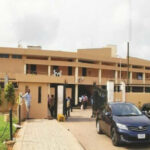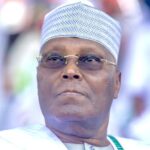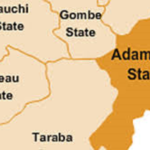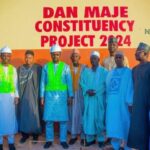
Gov. Nasir El-Rufai loves to flaunt his appointment of “non-indigenes” in his government as evidence of his cosmopolitanism. I know at least five top appointees of his who are not-and have never claimed to be-from Kaduna State. In fact, his Senior Adviser on Media and Communication is a Yoruba man by the name ofMuyiwaAdekeye. Yet during a May 4, 2018 rabble-rousing speech at a campaign rally in Kaduna, he called into question the “indigeneity” of all three senators from his state-in addition to tacitlyimploring his supporters to visit violence on the senators when they set feet on the state.
I have no knowledge of the ancestral provenance of the three senators, but it doesn’t matter where their ancestors came from. What matters is that they grew up in Kaduna State and identify with the state. If we were to all shake our ancestral trees, we would be shocked by what falls from them. In my May 7 Facebook status update on this issue, I pointed to a longstanding whispering campaign in Kadunathat El-Rufai himself is descended from Ebira ancestors in what is now Kogi State.
In response to the update, several people wrote to tell me that El-Rufai’s paternal ancestors are Malian Fulani, not Ebira. But this information just proves the point of my intervention:that our ethnic and geographic identities are mere accidents, which are incidental to our humanity. It’s both disappointing and hypocritical that a state governor would choose to delegitimize his state’s senators by calling attention to their supposed “foreignness” while taking credit for having a mind broad enough to appoint “foreign” people in his government.
In his May 11, 2018 BusinessDay column titled “Genocide, Hegemony and Power in Nigeria,” former Central Bank of Nigeria deputy governor Dr. Obadiah Mailafiaalso singled out the entire Fulani ethnicity for “othering.” I have to admit, though, that given the unchecked murderous fury of herders in the part of Nigeria Mailafia identifies with, his rather over-the-top emotional reaction is entirely legitimate and defensible. But in making his points, he played fast and loose with some facts. I highlight only three:
1. He identified Shehu Shagari, Murtala Mohammed (“through his mother”), Umaru Musa Yar’adua, and Buhari as Nigerian presidents “of the Fulani ethnic extraction.” Well, when I lived in Katsina for a year, I learned that the Musa Yar’adua family (of which the late President Umaru Musa Yar’adua was a scion) isn’t, as Mailafia claims, Fulani; it is patrilineally Tuareg (the Tuareg are a branch of the Berber cluster in North Africa), whom Hausa people call Buzu. Another prominent Buzu family in northern Nigeria that people mistake for Fulani is the Baba-Ahmed family in Mailafia’s Kaduna State.
Similarly, the late Murtala Mohammed’s paternal identity is the subject of elaborate, long-standing speculations, none of which points to a Fulani ethnicity. The most credible, in my opinion, is the speculation that his father wasfrom northern Edo State. A man by the name of Austin Braimoh, who says he is Murtala’s paternal first cousin, wrote in a February 19, 2016 Vanguard article titled “Remembering Murtala Mohammed” that Murtala’s father’s name was Dako Mohammed and that hemigrated to Kano from the village of Igbe in the Auchi area of Edo State via Lagos. Given the number of “Auchi” people who rose to prominence in the Kano society, this speculation isn’t far-fetched. We know, of course, that his mother was a member of the powerful Inuwa Wada family in Kano, but if Mailafia can arbitrarily use matrilineal lineage to determine Murtala’s ethnicity, then he should also denude Buhari of his Fulani ethnicity since Buhari’s mother is half Hausa and half Kanuri.
2. There are two incumbent elected presidents in West Africa who self-identify as Fulani: MackySall of Senegal and Adama Barrow of the Gambia. The Fulani are just about 18 percent of Senegal’s population and 21 percent of the Gambia’s. AhmadouAhidjo, a Fulani man, was also Cameroon’s president (actually the country’s first president) from 1960 to 1982, even though the Fulani are only 10 percent of Cameroon’s population. So Mailafia’s notion of universally reviled, unredeemable Fulani demons whom no nation in West Africa wants to entrust with leadership at the highest levelwhich, according to him, “explains why the Fulani have turned their attention to Nigeria,” is not supported by the facts. Not everyone, obviously, is as obsessed with unreflective ethnic particularism as Mailafia is.
3. Mailafia’s ethnic essentialist arguments are also perched on a thin thread of evidence. All scholars of identity will tell you that identity is fiction, even if it’s emotionally valid, politically consequential fiction. Mailafia himself has said several times that he is part Fulani. The truth is, no one is pure anything. Whether we know it or not, we are all ethnic “mongrels” trapped in what Jean-Loup Amselle calls “mestizo logics.”
My recent interest in recreational genetics has solidified the truth of this mestizo logic of our ethnicity for me. I did an ancestry DNA for my mother and me a few months ago and found that I am 14 percent Asanti (I was able to determine the ethnicity because Ancestry.com’s database matched my mother with a 4th cousin from Ghana who turned out to be a New York-basedAsantiman from Accra), 17 percent Malian (I haven’t determined what Malian ethnicity it is, but I suspect it’s Bambara), 33 percent Benin Republic/Togo, and 34 percent Nigerian. (One percent is from Senegal and another one percent from Congo/Cameroon).
My mother had not the foggiest idea that she had any ancestors from the Asanti. No one ever mentioned it to her. I knew she had Malian ancestry from the clan names of her forebears (“Manneh” and “Toure”), which are names Bambara/Mandinka/Mandingo/Malinke/Jula, etc. people bear in Mali, Senegal, the Gambia, Guinea, Ivory Coast, Sierra Leone, etc. But the oral history that was handed down to her says her ancestors came from Katsina and Borno. I have a slightly higher Malian DNA than she does, which means my father has a little bit of Malian bloodline, too.
It’s known to geneticists that several people in Mali, Guinea, the Gambia, Senegal, Sierra Leone, etc. embody complex ethnic alchemies, so it’s reductionist to talk of ethnicity in the essentialist terms that Mailafia did in his article. For instance, Alpha Konare, Mali’s president from 1992 to 2008, was born by a Fulani mother and a Bambara father, but he self-identifies as Bambara. The country’s first president, Modibo Keita, has a Fulani first name, although he didn’t self-identify as Fulani. Several Guinean presidents who self-identified as Mandinka had Fulani mothers or grandmothers. If we use the matrilineal logic of identity that Mailafia deployed to assign a Fulani ethnicity to Murtala Mohammed, many Guinean presidents would also qualify as Fulani.
My own attitude to identity is that people are who they say- and believe- they are, even if that’s not necessarily who they are. But given the originary syncretism of all modern ethnic identities, Mailafia’smisguided nativist logic of Nigerian citizenship (which alienates even the Fulani people whose ancestors have been here before Nigeria was conceived) ispolitically inconsequential fiction.
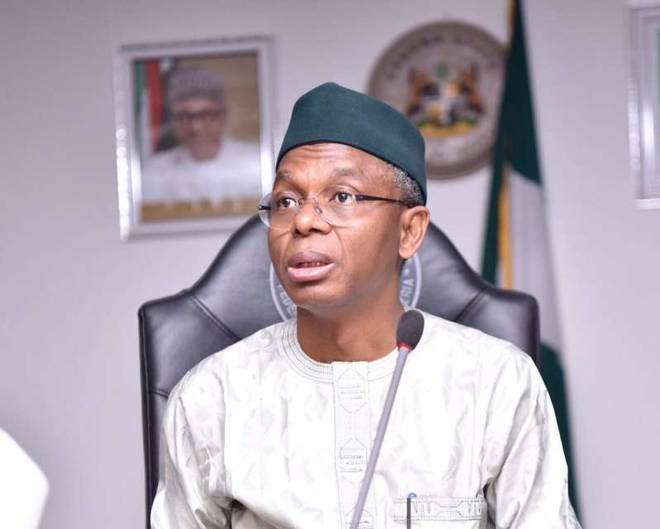
 Join Daily Trust WhatsApp Community For Quick Access To News and Happenings Around You.
Join Daily Trust WhatsApp Community For Quick Access To News and Happenings Around You.